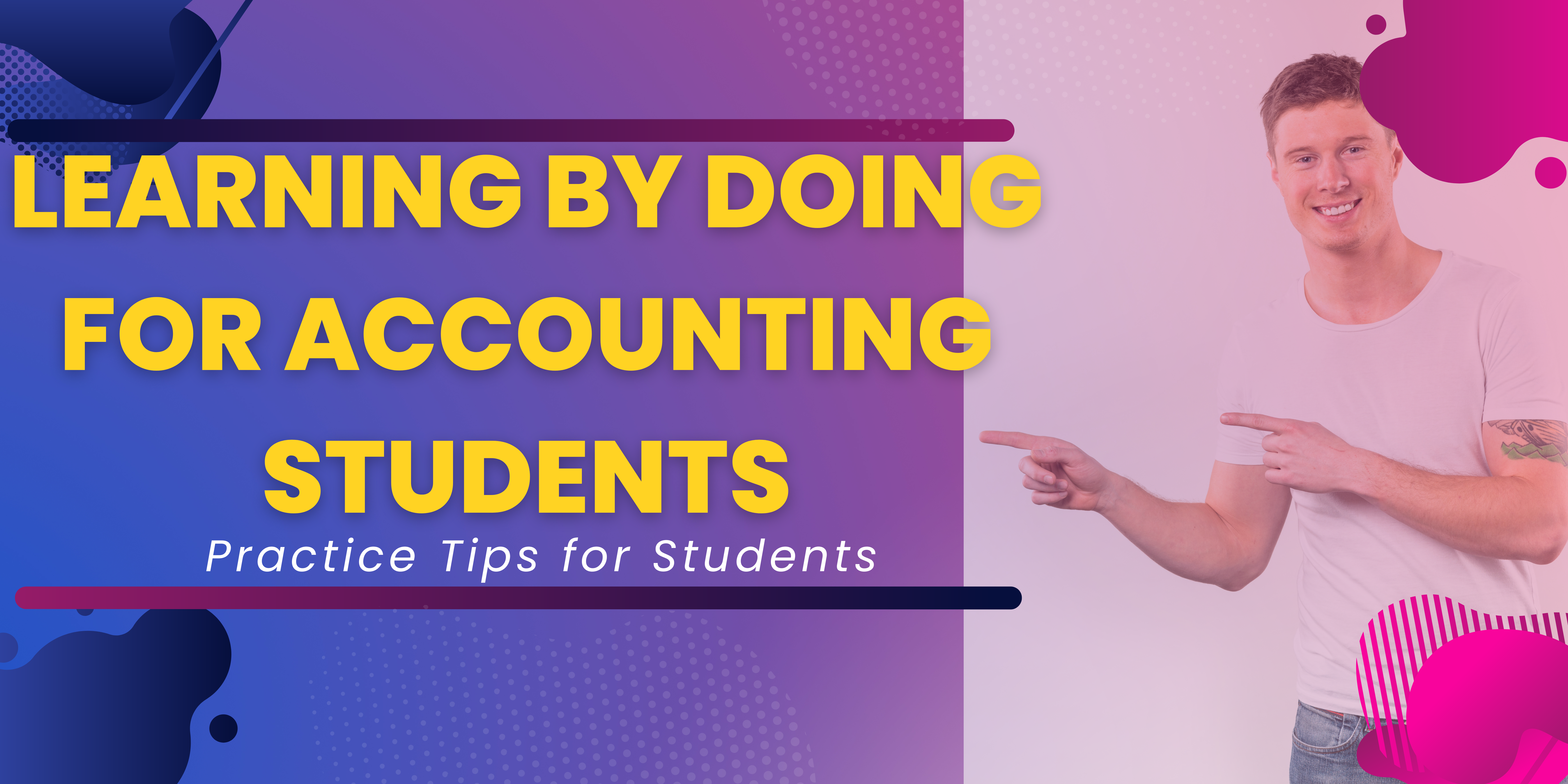
Why “Learning by Doing” Works for Accounting Students
When it comes to learning accounting, just reading textbooks isn’t enough. To really understand and excel in accounting, students need to practice what they’ve learned. This method, called “learning by doing,” is especially effective for accounting students. Here’s why:
Real-Life Practice
Accounting isn’t just about learning theories; it’s about applying them. By working on practice problems, case studies, and mock financial tasks, students see how these theories work in real life. This hands-on experience helps them understand how to use what they’ve learned.
Read Also: How Accounting Tutoring Can Help MBA students
Skill Building
Accounting requires more than just basic knowledge—it needs critical thinking and attention to detail. When students actively work on accounting problems, they improve these skills. They learn to analyze data carefully and make accurate decisions, which are essential for their future careers.
Better Understanding
Doing accounting tasks helps reinforce what students learn from their books. It’s one thing to read about accounting rules, but it’s another to use them in practice. Working through problems helps students understand and remember these rules better.
Getting Comfortable with Tools
Today’s accounting relies on software and tools. By practicing with these tools, students get familiar with the technology they’ll use in their jobs. This experience makes them more efficient and better prepared for real work situations.
Building Confidence
Completing exercises and solving problems helps students build confidence. As they succeed in their practice tasks, they feel more prepared for real accounting challenges. This boost in confidence is important for their future work.
Read Also: How is working for the Big Four Firms
Quick Feedback
One of the best things about practicing is getting immediate feedback. Students can quickly see what they did right or wrong and learn from their mistakes. This fast feedback helps them improve their skills more effectively.
Real-World Relevance
Practicing with real-life scenarios helps students understand how accounting principles are used in the real world. This makes their learning more relevant and prepares them for the kinds of problems they’ll face in their careers.
Summary
“Learning by doing” is a powerful way for accounting students to grasp important concepts. By practicing real tasks, students not only strengthen their understanding but also develop essential skills, gain confidence, and become comfortable with the tools they’ll use in their jobs. This approach turns theoretical knowledge into practical expertise, setting them up for success in their accounting careers.
FAQ: Learning by Doing in Accounting
1. What is “learning by doing”?
“Learning by doing” means practicing what you’ve learned by actually working on tasks instead of just reading or listening. In accounting, this involves solving problems, working on case studies, and using simulations to apply what you’ve learned.
2. Why is “learning by doing” good for accounting students?
It’s good because it helps you see how accounting concepts work in real life. It also helps you develop important skills, gain confidence, and get used to the tools used in real accounting jobs. Plus, you get quick feedback to help you improve.
3. How does hands-on practice help accounting students?
Hands-on practice makes it easier to understand how accounting ideas apply in real situations. It helps you develop skills like solving problems and paying attention to details. It also boosts your confidence and prepares you for actual work.
4. What kind of activities are involved in “learning by doing”?
Activities include solving accounting problems, working on real-life case studies, creating financial reports, using accounting software, and participating in simulations that mimic real-world scenarios.
5. How does “learning by doing” help with understanding accounting theory?
Practicing what you’ve learned helps you understand and remember accounting theories better. It shows you how these ideas work in real situations, making them easier to grasp.
6. How does immediate feedback help?
Immediate feedback shows you right away what you did right or wrong. This helps you quickly learn from your mistakes and improve your skills.
7. Why is using accounting software in practice helpful?
Using accounting software helps you get used to the tools you’ll use in your career. It makes you more efficient and helps you understand how to use the software effectively.
8. How does “learning by doing” build confidence?
When you successfully complete exercises and solve problems, it boosts your confidence. You feel more prepared and capable of handling real accounting challenges.
9. Are there any downsides to “learning by doing”?
It can take more time and resources compared to just reading or listening. However, the practical experience and skills you gain usually make it worthwhile.
10. How can I use “learning by doing” in my studies?
Try to practice with real problems, use case studies, and work with accounting software. Look for ways to apply what you’ve learned in practical exercises and simulations.
11. Where can I find resources for “learning by doing”?
You can find resources in accounting textbooks with practice problems, online courses with interactive exercises, tutorials for accounting software, and study groups where you can work on case studies and simulations.
"Are you tired of struggling in accounting class? Let us make accounting easy and enjoyable for you."







